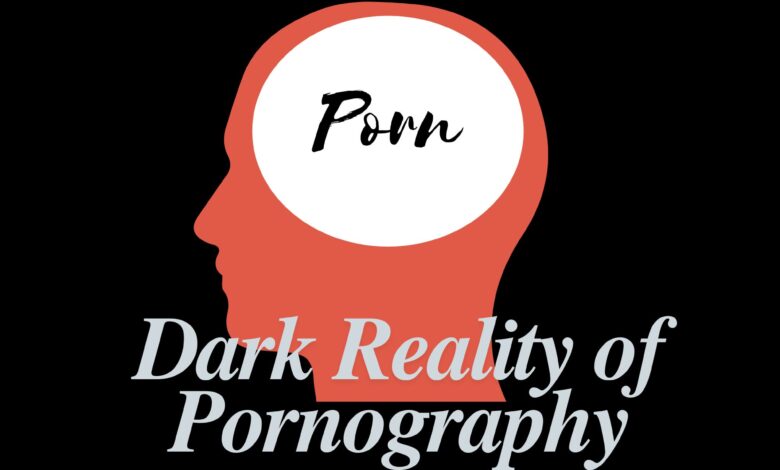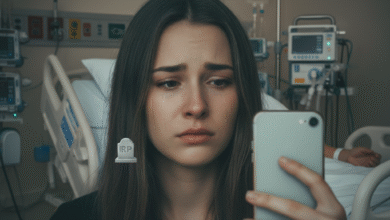The Dark Reality of Pornography

Pornography refers to materials such as images, videos, texts, or other media explicitly designed to depict sexual content for sexual arousal. This content can include representations of nudity, sexual acts, or erotic themes. It is a controversial topic with varying opinions:
- Legal Perspective: Many countries regulate or restrict the production, distribution, and consumption of pornography, especially when it involves illegal or exploitative content.
- Social and Cultural Perspective: Views on pornography differ based on cultural, religious, and individual values, with some considering it acceptable and others seeing it as harmful.
Imagine sitting in a dark room, alone with your phone or laptop. You tell yourself it’s just a quick escape, one video, no harm done. But is it harmless? With every click, your brain is being rewired, altering how you think, feel, and behave. What seems like a simple habit of watching pornography is quietly turning into a powerful addiction, affecting your mental and physical well-being in ways you never imagined.
Is your mind slowly being hijacked? Could this habit be destroying your real-life relationships?
The epidemic of pornography is quietly devastating the lives of young people across the globe, creating a cycle of dependency that’s hard to escape. But how exactly does it change your brain? How does it impact your body, relationships, and motivation to live fully? And more importantly, how can you break free before it’s too late?
Ready to uncover the truth? Let’s dive into the dark, dangerous effects of pornography. How Pornography Rewires Your Brain and Destroys Mental and Physical Health and discovers the path to reclaiming control over your life.
How Pornography Affects Your Brain
Research shows that pornography impacts your brain in ways similar to highly addictive substances like cocaine and heroin. When you watch porn, the brain releases dopamine, the “feel-good” chemical which gives you a temporary sense of pleasure. However, over time, this dopamine rush creates a need for more intense stimulation, leading to addiction. This rewires your brain, reducing your ability to feel pleasure from everyday activities like socializing, exercising, or even intimate relationships.
The Shrinking Brain
Frequent consumption of porn can shrink key areas of the brain. Studies show that the prefrontal cortex, responsible for decision-making, impulse control, and motivation, can suffer from reduced gray matter. This can lead to a lack of focus, poor decision-making, and difficulties in real-life relationships. The brain’s reward system becomes desensitized, meaning that the pleasure you once got from normal activities begins to fade, pushing you deeper into a cycle of dependency.
Porn-Induced Erectile Dysfunction (PIED)
One of the lesser-known but serious physical impacts of pornography is porn-induced erectile dysfunction (PIED). Young men, in particular, are finding it increasingly difficult to perform sexually in real-life situations. Why? The overstimulation from watching explicit content conditions the brain to need extreme forms of arousal, which normal sexual encounters simply cannot provide. This leads to performance anxiety, shame, and deteriorating intimate relationships.
Addiction and Isolation
Pornography addiction doesn’t just impact the brain; it also takes a severe toll on mental health. Addiction can lead to feelings of guilt, depression, anxiety, and even social isolation. Much like drug addicts, individuals addicted to porn often feel trapped in a cycle of shame and dependence, struggling to quit despite knowing its harmful effects.
Can You Recover? Yes, You Can!
The good news is that you can regain control over your life. Breaking free from pornography requires effort, but it’s possible with the right steps. The first and most crucial step is awareness and understanding that porn is harmful and affects your brain and body. Abstinence, or cutting off exposure to pornography, helps your brain heal. Over time, the brain’s natural ability to experience pleasure from everyday activities is restored. Therapy and counseling can also be beneficial, especially cognitive-behavioral therapy (CBT), which helps address the psychological triggers behind addiction.
Support groups provide a safe space where individuals share their stories, build accountability, and work together toward recovery. By surrounding yourself with positive influences and focusing on healthier forms of entertainment and self-fulfillment, you can break free from this hidden epidemic.
The Journey to a Healthier Life
Pornography might seem like a private escape, but the long-term costs far outweigh the temporary relief it offers. It rewires your brain, desensitizes you to pleasure, and can lead to serious physical issues like PIED. However, recovery is possible, and by seeking help, you can start your journey toward a happier, healthier life.
Remember, you are not alone. Many people have walked this path and successfully reclaimed their lives. If you or someone you know is struggling with porn addiction, now is the time to act. Don’t let your life be dictated by a screen. Start your journey to freedom today and rediscover the joy and fulfillment that life has to offer.
The unseen epidemic of pornography addiction is destroying the potential of countless young people. But hope is not lost. By understanding the science behind this addiction and taking steps to recover, you can reclaim your mental and physical health. The journey to recovery may be tough, but it’s worth every step.
Are you ready to take back control?




Dark side of our society nowadays